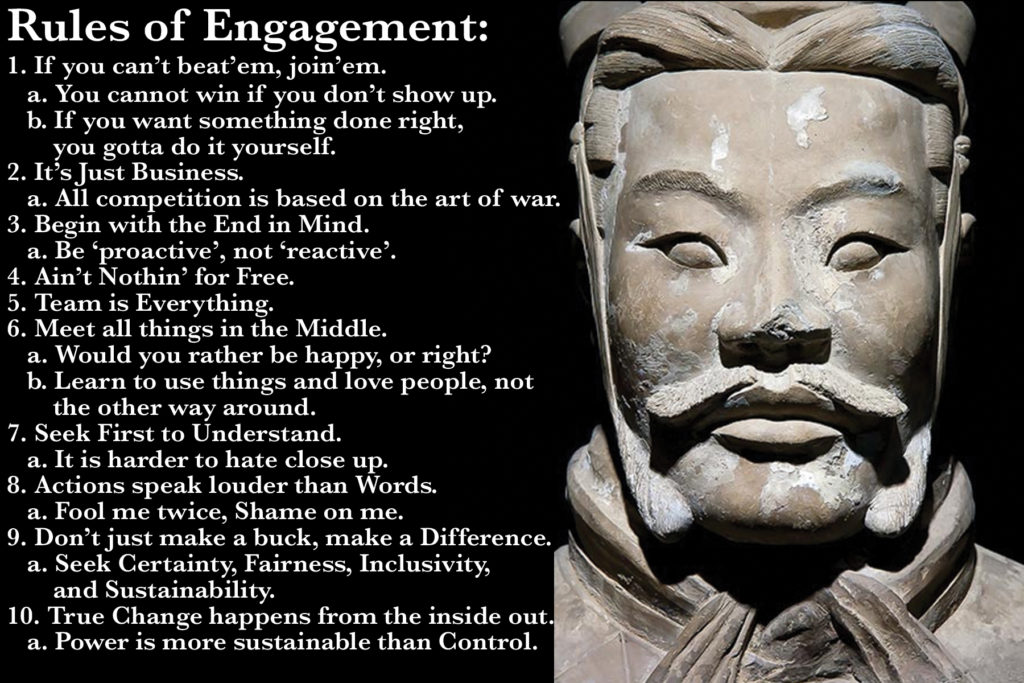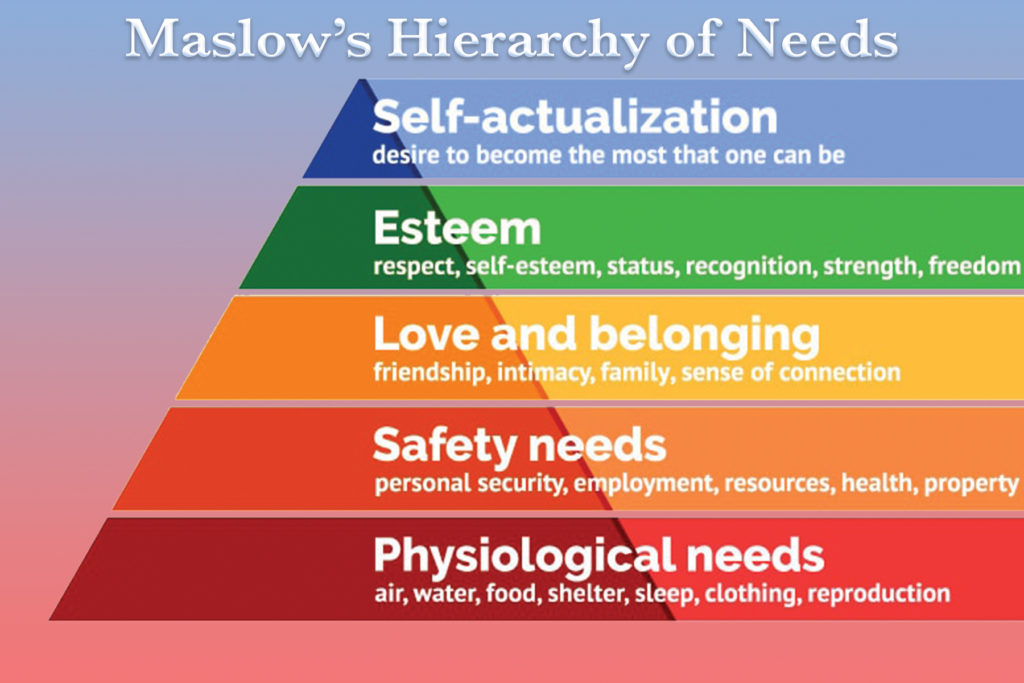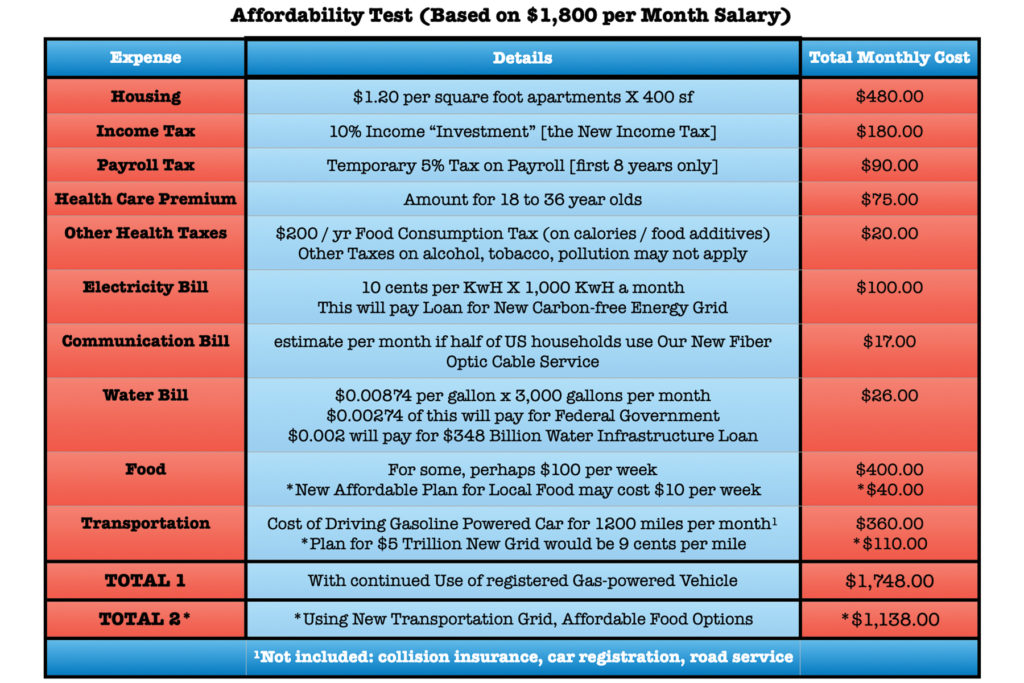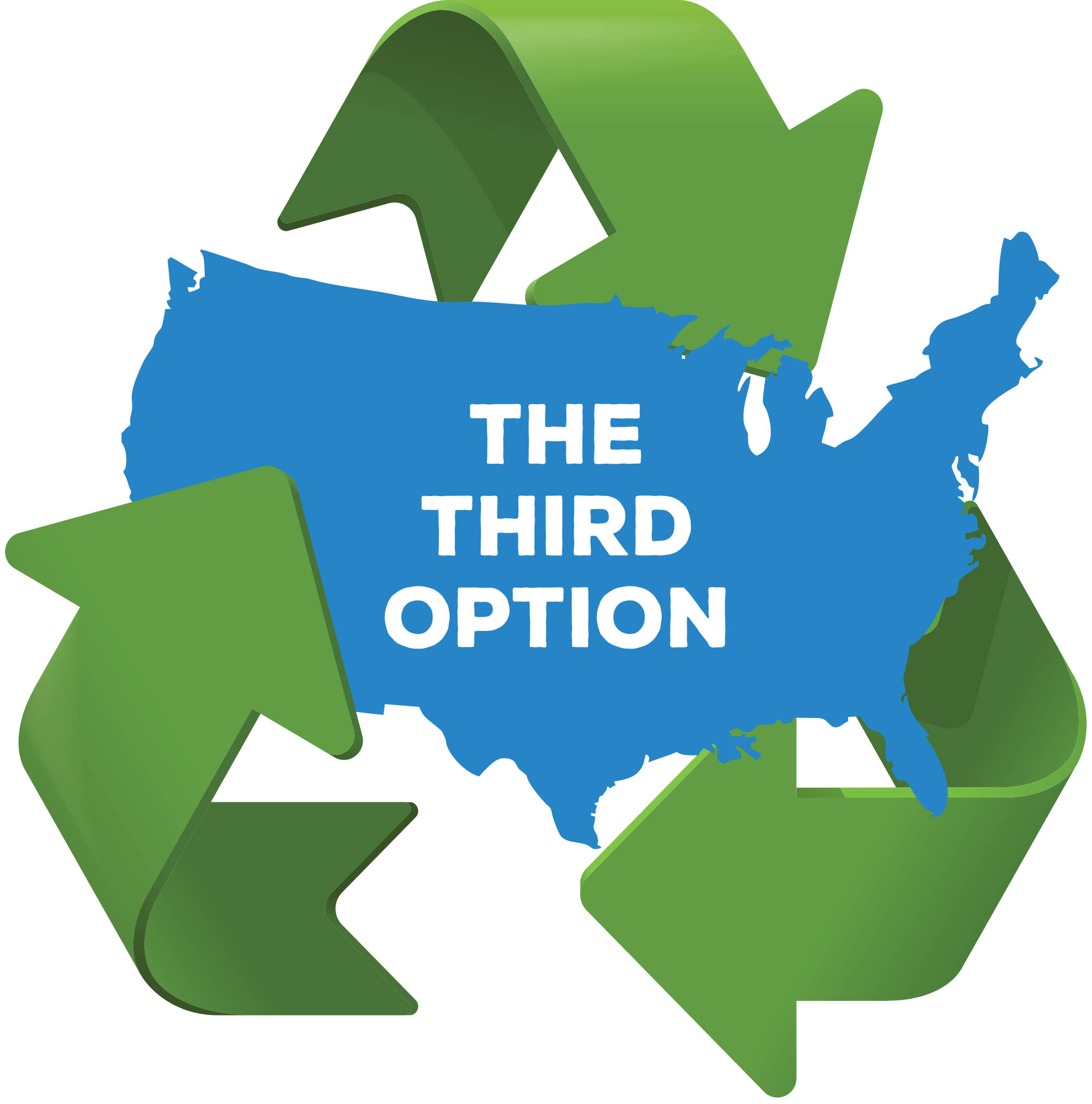Our current socio-economic arrangement is a Capitalistic Representative Democracy, which means that for one third of our day we live in a Dictatorship (Capitalism), and for another eight hours we sleep, and dream this beautiful dream we call Democracy. For those last 8 hours, while we are awake, someone has been hired to represent us, to meet with us and address our grievances, then go back to the Government and negotiate for us.
But with whom are they negotiating? The Congress is made up entirely of representatives of the People, and 99% of the People basically have the same grievance: we just want a little Certainty, Fairness, and Inclusivity (the smarter people also want Sustainability). This constant flood of Capitalism may indeed raise all boats, but most of us don’t own a boat; they cost too much. Most of us are just treading water out here, hoping maybe someone will let us on board.
Let’s keep it simple for now; we can argue more about it later. Capitalism is running this entire boat show, not Democracy. We are living in Capitalism’s version of Democracy. We the People are the Labor. Our government is simply a Labor Union, and our elected officials are merely Union Representatives supposedly hired by us (certainly paid by us) to negotiate with Capitalism. Most of our Representatives are, in fact, hired by Capitalists, because in Capitalism’s version of Democracy, those with the most cash are allowed to purchase more Equality.

Rule of Engagement #1: “If you Can’t Beat ‘em, Join ‘em”. If Capitalism is the only game in town, and we ever hope to get our fair share, we all better ante up and get in the game. The only thing we need in a game of Capitalism is a little ‘Capital’. Luckily, the government is in charge of the ‘capital’, and We the People are in charge of the government, so it is perfectly legal for us to go into business for ourselves. We even have ourselves a People’s Bank, the First Bank of the US, which our own Supreme Court made legal (see McCulloch v Maryland 1819), so it’s time we use it, and get in the game.
Rule of Engagement #2: It’s just Business. No offense to the private sector. We are going to open up one of those huge Discount Department Stores and sell ourselves a bunch of essential stuff at really good prices. What kinds of departments should we have? Maybe we could have one of those Agriculture Departments, or how about a Health and Human Services Department? Maybe even an Education Department…not coincidentally, these departments already exist inside our United States Federal Government. The government can only collect money one way: through ‘laying and collecting’ taxes, while our National Public Bank is only allowed to hold money through ‘laying and collecting’ taxes, and only allowed to loan money toward what is ‘necessary and proper’ in securing our unalienable rights. Thus, we can only offer goods and services that are essential enough to warrant a government department.
Our Business Strategy
The Third Option for going forward will follow a ‘Proactive’1 Five Step Strategy:
STEP 1: Consult our original Mission Statement. Government reach can only extend to what is within its Mission Statement. The two sources for this are the Declaration of Independence and the US Constitution; from these we could determine what is legal for our government to sell in our Discount Department Store.
Declaration of Independence:
“…We hold these truths to be self-evident, that all [people] are created equal, that they are endowed…with certain unalienable rights…among these are life, liberty, and the pursuit of happiness…”
US Constitution:
“…Establish Justice, insure domestic Tranquility, provide for the common defense, promote the general Welfare, and secure the Blessings of Liberty to ourselves and our Posterity…”
STEP 2: Derive a working list of Essential Needs3 that help secure the life of every citizen and which would go a long way toward insuring domestic tranquility, promoting the general welfare and also establishing Justice, but only if we interpret Justice to mean fairness, which implies being treated as an “equal” once one has been created equal. Therefore, all strategies would have to pass this ‘Fairness’ test. Liberty and happiness imply citizens have a choice, and government would continue to secure this right to choose through providing a ‘common defense’, which we interpret to mean a defense for all citizens equally (and thus “common” to or shared by everyone). To secure all these Blessings to Our children not only implies that we provide these Basic Needs well into the future, but also to secure the World we are leaving behind as well. This goes to education (leaving our kids the ‘Operating Manual’), but also toward cleaning up any messes made while we were in charge of the planet. Obvious examples of threats to future Liberty would include other people we have angered through our actions, or bonehead choices we made that now put the planet at risk (like all those nukes, perhaps, or Our 800 million gallon a day Oil habit).
STEP 3: Rule of Engagement #3: Always Begin with the End in Mind. For every Basic Need on Our list, we would first determine the desired outcome, then determine a working Business Model4 for how to achieve this desired outcome.
Translation: We must siphon Our Basic Needs list through a business model strainer. Our Department Store is not serving up free Food and Housing and Health Care and Education. What kind of a business gives away its products and services for free? We must play this “game” by the rules (aka Economics). Fourth Rule of Engagement: Ain’t Nothin’ for Free, not even Freedom. Sorry. No Basic Income, and no more handouts, subsidies, or grants, either. No more free money. Everybody Works. Everybody Invests. Everybody Profits. Everybody Counts. Rule of Engagement #5: Team is Everything. And who is on our Team? Everyone. Everyone is on the Team. You knew that, right? Ok, good. Just checking.
STEP 4: Before we can ‘okay’ any proposed Basic Needs Business Model, it must meet two other requirements. First, all Business Models must pass Our BAR EXAM, which means they must clear the “bar” of being “Economically Democratic”. On the Exam are 5 questions:
- Does the proposed business pass the Financial Viability Test? (Will it at least pay for itself?)
- Does it pass Our Affordability Test?5 (Based on a $450 a week salary)
- Does every facet of the Model meet Our Sustainability Test? (Is it a Win / Win for the Planet and all the People involved? / Does it erase previous “negative externalities” without causing new ones?)
- Does it help to solve any of the other issues on Our Priority Checklist?6
- Does it pass Our Fairness Test? (Meets all of us in the Middle financially, philosophically, politically, even socially)
STEP 5: Finally, Our Model needs to navigate around all the ELEPHANTS IN THE ROOM. These are common obstacles to objective reasoning that distort perception and thus color or cloud decision-making. When in doubt about anything, we would double check here to see if some unconscious bias is driving Our decisions. (In a way, this is simply a deeper dive into the previous Fairness Test).
SUMMARY
Our overall endeavor is that through this Social Experiment, we take a first step toward a sociological THEORY OF EVERYTHING, which is a formula uniting the different silos of human understanding for the purpose of building a universally accepted Operating System for the entire planet.
NOTES
1 versus a “reactive” non-strategic approach2 to decision-making, which leads to “band-aid” solutions that get applied then ripped off then reapplied, depending on who is in power, while the underlying infection continues to fester.
2 examples of non-strategic approaches:
- doing nothing (often combined with statistics which confirm that everything is going great for everyone but you)
- saying you are going to do something and then do nothing (variation: propose something absurd then blame the other party for voting it down)
- a “shell game” approach where a finite amount of funds are moved around [“robbing Peter to pay Paul”], in order to temporarily grease the squeakiest wheel (the current most-vocal complainer) at the expense of other less-disgruntled groups.
- mass firing or hiring to “shake things up” (which leads back to A, B, or C)
3 basic human needs will be derived from Maslow’s Hierarchy of Needs. We feel this presents a fairly comprehensive list of the most basic needs, although We do not believe that Human Needs can be necessarily placed in a “hierarchy” (a system ranking one as more important than another). Many have sacrificed Physiological or Safety needs for allegiance to friend or family or group or country, or even for some strong belief or purpose. All of these instances speak to the underrated power of Belongingness to some One or some Thing outside Ourselves that is so powerful, it overrides even Our basic survival instincts.
TRANSLATION: In desperate situations, the group who steps up to feed and shelter and protect a particular individual will set the parameters for how this individual later seeks prestige and accomplishment and self-fulfillment within the group, sometimes to the detriment of other segments of the population. This is the best argument for the complete and total Inclusivity of all people, and thus will be our never-ending Number One Priority.

PHYSIOLOGICAL NEEDS
We need clean air, thank you. We need affordable food and water. We need affordable shelter, where we can be protected from the elements and obtain rest.
SAFETY / SECURITY NEEDS
We need to maintain certainty in Our lives. This speaks to our Physical, Mental, and Emotional Health, but also speaks to Job Security, which in our present system is how we procure most of our Physiological Needs. This in turn implies a Job Apprenticeship or Education, in order to secure financial viability. Again, because of our chosen socio-economic arrangement, both Transportation and Electricity must also count as necessary ingredients to our survival, and thus be made affordable. Finally, we seek a stable environment in which to thrive, from the local level to the national and even international level. This necessitates a form of protection that ensures Certainty for everyone (which goes to fairness) and implies we must keep the peace at the same time we attempt to maintain it.
SOCIAL NEEDS
By having control of the means for procuring society’s most Basic Needs, we are also able to leverage how members of our society interact with each other. Education can instill in our children crucial tenets of social interaction such as Fairness, Empathy and Inclusivity, while exposing them to Diversity and a Work Ethic emphasizing Team over purely individual achievement. At the heart of all this connectivity must be an easily accessible Communication Network, that dissuades us from the toxic side effects of isolationism, which leads us toward depersonalization, then paranoia, and culminates in a tendency to attack others and call it self-defense.
ESTEEM NEEDS
To keep all of us connected, it would be important to give everyone a purpose and a path toward making a difference, as well as find a place where each individual could contribute and feel needed. This may at times require coaching, mental health counseling, and re-education. Sometimes it may also require offering people a second chance, which implies a more intelligent approach to rehabilitation. Again, the reasoning suggests that if someone is shunned or is allowed to drift apart from our Team, the need for Belongingness would simply lead them to find a different Team, often one that would resent us for letting them down in some way we failed to notice. This implies the need to start paying a lot more attention to those around us (as well as those who are ‘out of sight’). We would begin with Daycare and Pre-K, then provide in-class counselors all along the educational path, then continue this process throughout adulthood.
SELF-ACTUALIZATION NEEDS
Sometimes the area where a person most easily excels is also where their passion lies. Sometimes not. In order that each person has time for a job and a passion, We must:
- pay people what they are worth [value everyone equally]
- offer everyone enough time to pursue [their] happiness. This means shifting to both a higher minimum wage and a shorter work week.
4 Basic Business Model
- Revenue (what we charge ourselves for each Basic Need) only has to EQUAL Overall Expenses. A List of Expenses include:
- Recurring Costs [Direct Costs]
- Salaries (these are jobs we are giving to ourselves, so therefore we would not skimp in this area)
- Supplies, Materials, etc. (We would reduce these costs by making some supplies ourselves, and procuring Materials [especially raw materials like wood, iron ore or land] for free + the cost of extraction)
- Management / Administration (these costs would be left out of our Business Expenses, and paid for as part of Our Federal Government Costs (See the New Federal Budget)
- Non-Recurring Costs
- All Equipment or Infrastructure costs would be lumped together into a loan from our Bank, where we would charge ourselves 4% interest for 30 years in order to pay it back in the form of our Retirement Dividends, which would replace Social Security approximately 8-10 years after Its inception.
We would also benefit from other proven Economic Strategies:
- “One Touch” or “Dig Once” policies, where we combine all our Infrastructure Projects and complete them simultaneously.
- Making project materials “In House” when the Private Sector refuses to offer us “a good deal”.
Economics 101:
- ‘You gotta have money to make money’ (we would first level the playing field financially with our National Public Bank).
- Insist on Sustainability, meaning:
- make sure each business can pay for itself.
- pay attention to “negative externalities” – those nasty side effects from taking short cuts or employing short term [or short-sighted] thinking.
- Use Economies of Scale (go big to spread costs out).
- If ‘Rent’ (‘Money for Nothing’) is allowed to exist, let’s make sure we are the ones collecting it, which means we need to reclaim the things that are all of ours together (example: the land wherein the United States of America resides, plus whatever rests above it or below it, or the platforms / infrastructure that we create to service all of us).
- Law of Demand then Supply: We will only make the things that people need (and therefore demand), and leave the private sector to make things that:
- we don’t need (then attempt to convince us we do, through ‘marketing’), or
- prey on our genetic predisposition toward addictive behavior (which we would now regulate through healthcare taxation).
- Free Market Competition – While we don’t really believe markets are entirely free or transparent or even competitively fair, we hope that by getting in the game, we may help drive down prices in the private sector, who have begun to acquire a monopoly over basic needs like health care, housing, organic food, communication, transportation, etc.
5 The Affordability Test
We hope someone in the near future figures out how to have a 20-hour work week with a $20 an hour Minimum Wage. Unfortunately, we are not prepared to go that far at this time, though we need to get the ball rolling in that direction. We would implement a 30-hour work week with a $15 an hour Minimum Wage. This would result in a paycheck of $450 per week, or at least $1800 a month. When we establish Our Federal Department Store, we would not only have to cover all expenses [so it pays for itself], but we would also have to offer Basic Needs at a cost of less than $1800 a month. This is in line with our sixth Rule of Engagement: Meet All Things in the Middle, where We the People would lower the price, and You the Individual would rise to meet it (through getting a job and keeping it). Here’s a glimpse at a working monthly budget:

Priority Checklist
- Would it help foster peaceful relations among us? [insure domestic tranquility]
- Does it bring us closer together, or separate Us even further?
- Does it promote the General Well-Being of all citizens? [promote the general welfare]
- Does it provide certainty? Does it provide purpose or a feeling of significance?
- Would it be seen as inclusive and fair to all people? [establish justice]
- Is it a Win / Win for everyone?
- Does it maintain our basic freedom of choice [Liberty], while firmly establishing the Disclaimer that Freedom is rarely Free, and choices, while allowed, would now come with their full financial consequences attached? *
- Does it protect all citizens equally? [provide for the common defense]
- Does it secure our children’s future? [secure liberty for our posterity]
- Is the Strategy ‘proactive’ (follows all Our pre-determined principles), or is it ‘reactive’ (tainted by our baser instincts, or influenced by The Elephants in the Room)?
* In order to be absolutely transparent regarding our purpose: there is no “nudge” or other hidden agenda intended when adjusting prices to reflect their true cost. People would still retain the freedom to over-eat, smoke, drink, own lots of guns, jump out of planes or drive huge gas-guzzling vehicles, but now that Our Fates are Tied Together [in everything from Health Care and Education to Federal Businesses and Infrastructure], everyone must ‘pay in full’ for their choices. The goal of this system is to be more sustainable [meaning, among other things, to stay within a budget], and some choices are simply more expensive, and others less so. Government is by necessity ‘paternal’, when it tries to tell the rest of us what to do; The Third Option wants to utilize our current economic arrangement, where everything has a price tag on it, and let people choose, per their Liberty, the things they can realistically afford. The Third Option also believes that no ‘consumer’ choice is worth dying over, so hopes to make our essential needs, at least, more and more safe to use. If one chooses to risk their life, that should be a choice that does not affect those of us who do not.
